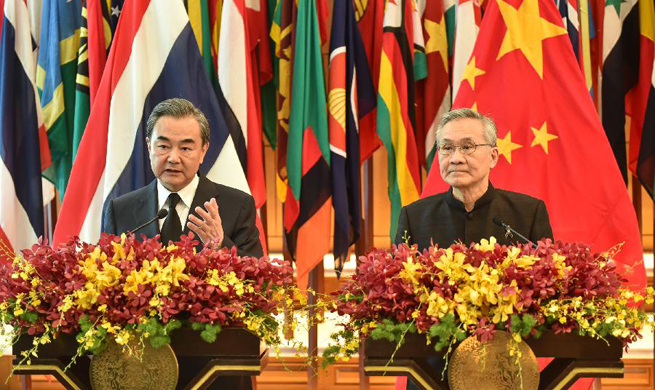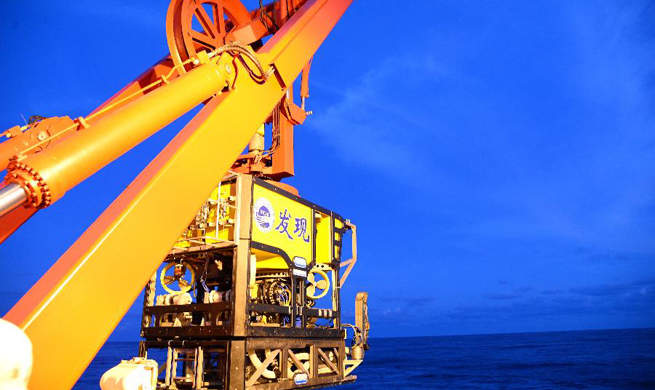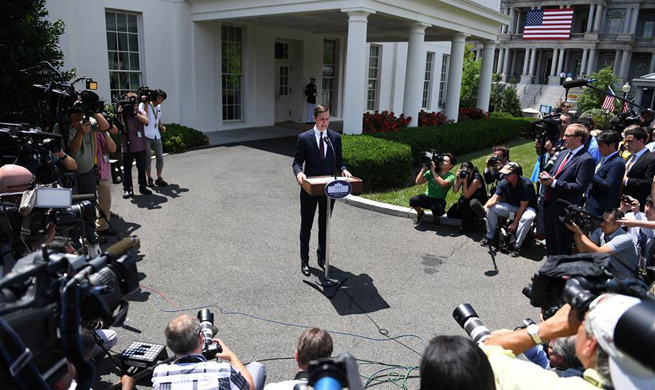WASHINGTON, July 24 (Xinhua) -- U.S.-China economic relations will be more balanced and mutually beneficial as long as both sides intend to create a win-win solution, Dominic Ng, chairman and CEO of East West Bank, told Xinhua in a recent interview.
The inaugural China-U.S. Comprehensive Economic Dialogue (CED) concluded last week in Washington D.C., after top economic officials from both sides exchanged candid and in-depth views on issues like trade, investment and market access.
"The U.S. and China have been trade partners for a long time, and this engagement stabilizes and strengthens their relationship. After 30 years of rapid expansion, U.S.-China economic and trade relations have expanded from simply goods to every aspect of the economy," said Ng, the head of a U.S. bank with total assets around 35 billion dollars.
America's trade deficit with China was a contentious issue in the first round of CED. The bilateral trade gap, however, is exaggerated by outdated calculation methods. "With the globalization of the production chain today, this methodology can't accurately reflect a globalized economy, and is very likely to create conflict among countries that heavily rely on each other," Ng explained.
A study by economists with Federal Reserve Bank of Dallas shows that using a value-added approach to measure bilateral trade reduces the U.S.-China trade imbalance by 33 percent in 2013.
"As long as both sides have the intention of creating a win-win solution, respect the issues each is facing, and proactively and constructively resolve them, this will push the U.S.-China trade relation to be more fair, balanced, and mutually beneficial," said Ng.
In the first round of CED, China agreed to further open up its service sector and expand bilateral trade in services with the United States, as the country is shifting its economy towards a growth model powered by consumption, services and innovation.
While the United States has already developed a robust and competitive service industry, China's service industry, especially high-end services, is still developing. "China should look for an appropriate time to open its service economy and quicken the development, and proactively seek collaboration with the United States. At the same time, China should aggressively promote the development of high added-value service trade," Ng said.
Bilateral investments between the United States and China have been booming in recent years, with China's direct investment in the United States last year tripling to 46 billion dollars from 2015.
According to a joint report by Rhodium Group, a consultancy, and the National Committee on U.S.-China Relations, the cumulative value of U.S. foreign direct investment transactions in China since 1990 exceeds 240 billion U.S. dollars, while Chinese companies had invested 110 billion U.S. dollars in the United States by the end of 2016.
"The prediction that the United States will raise interest rates is pressuring the balance of international payments and will not cease any time soon," said Ng.
"Therefore, China increasingly restricting outbound investment will create risks for Chinese investing in the United States in the short run. This means that Chinese corporations need to improve themselves. Even though they are making less investments, the approved investments will have better quality, and the success rate will be higher," said Ng.
As to future cooperation, Ng pinpointed three sectors where the United States and China could develop mutual benefits: infrastructure, the auto industry, and finance.
"Investing in America's infrastructure is an overlooked opportunity," said Ng, as the U.S. Chamber of Commerce estimates that through 2030, the United States will need more than 8 trillion dollars to build infrastructure for transportation, energy, and water resources.
Concerning the auto industry, Ng suggested that allowing foreign companies to gain more shares in joint automobile ventures in China will help the world's largest developing economy attract more foreign investments and restrict overcapacity.
"Another win-win partnership is to increase foreign capital involvement in China's finance sector," said Ng. "In the long run, opening China's financial market will catalyze Chinese enterprises to expand overseas."

















